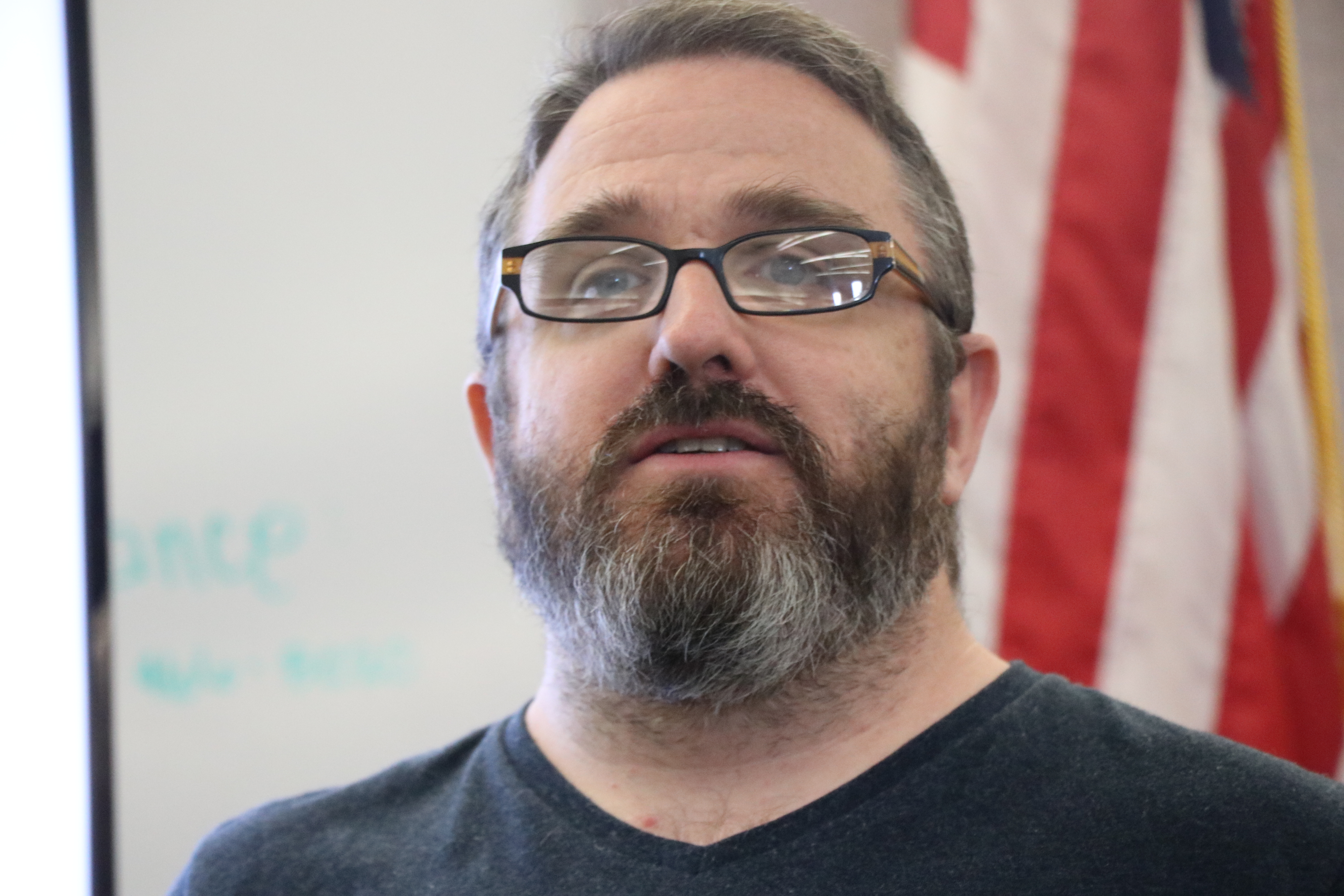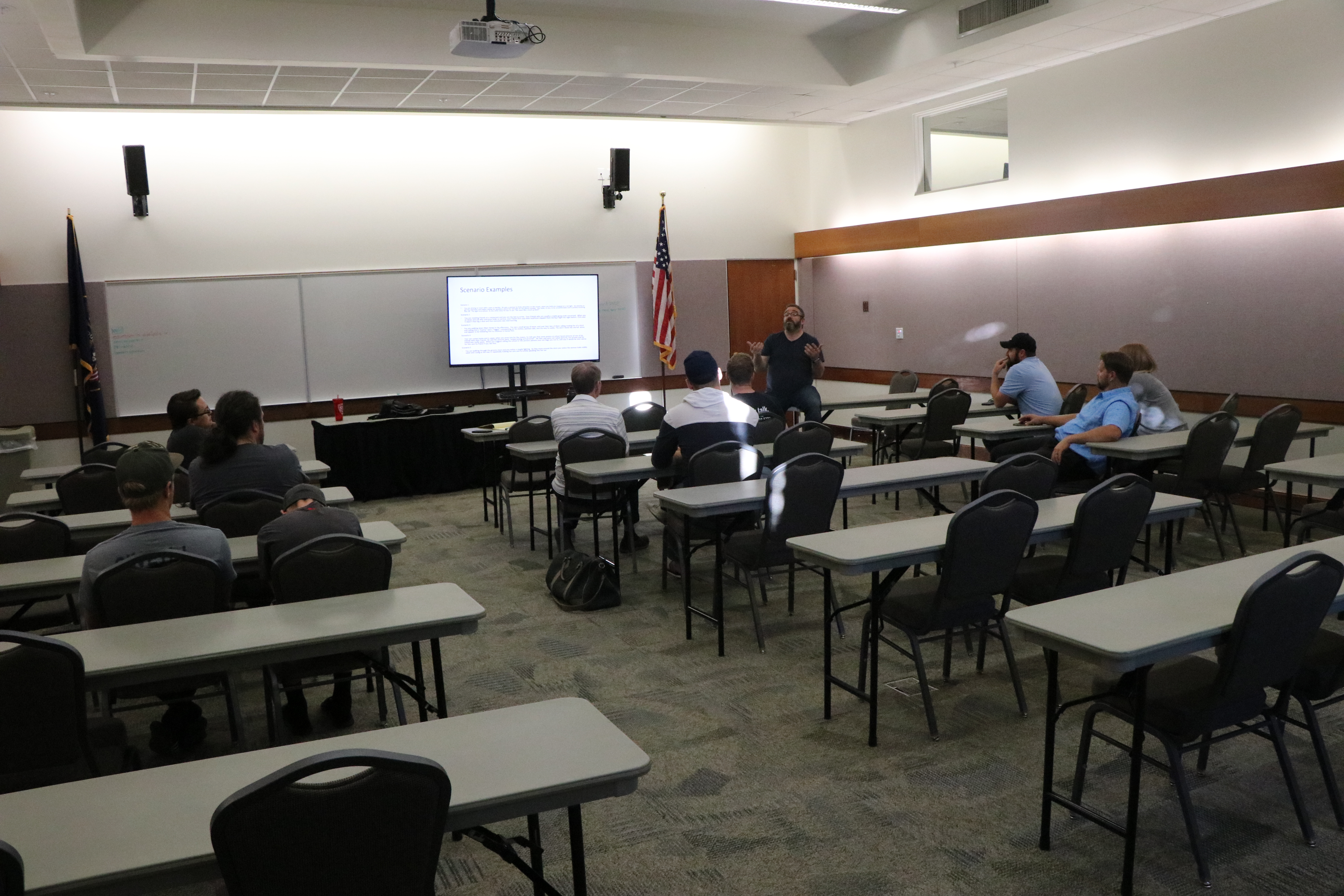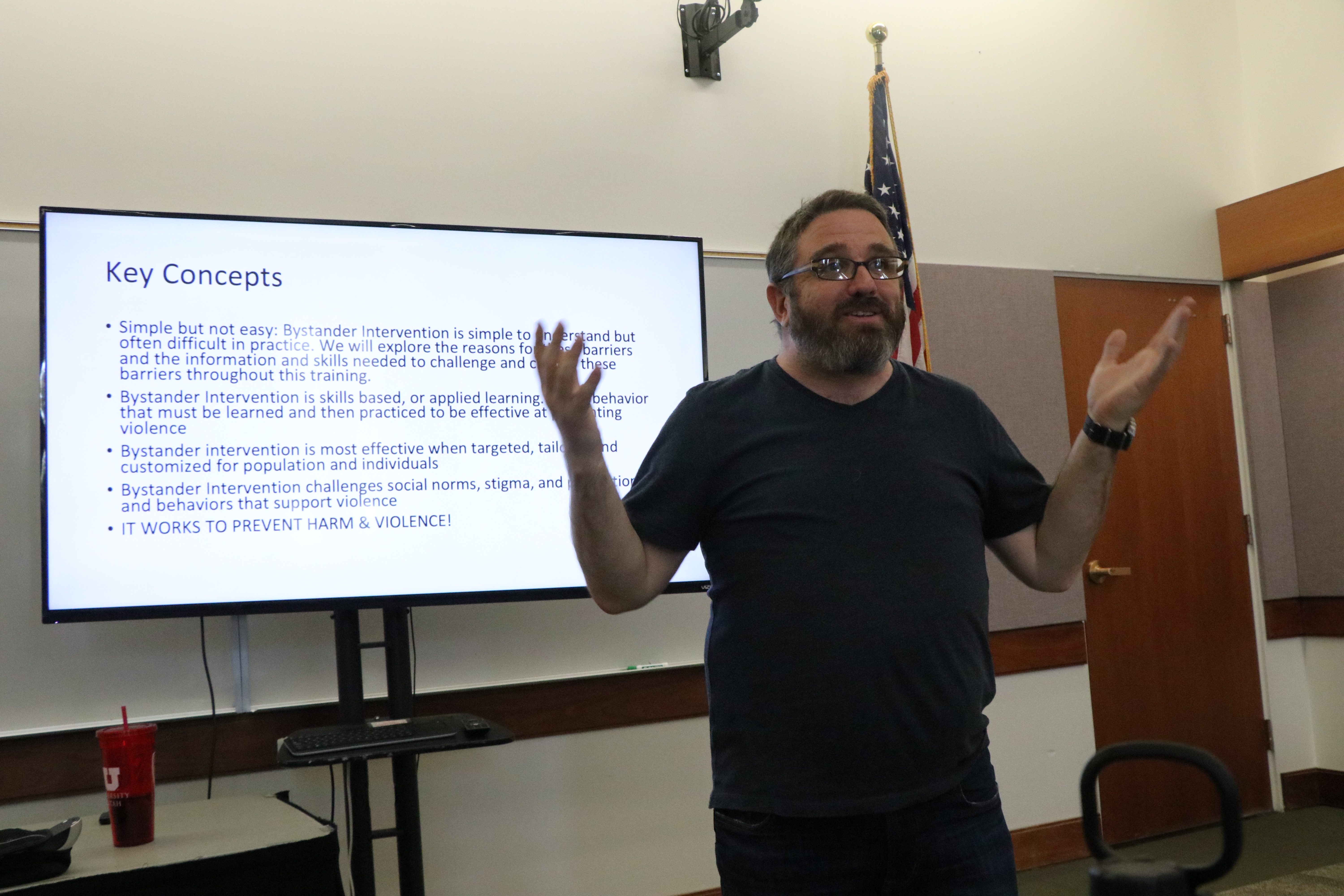
CEDAR CITY — What would you do if you were witnessing a potentially harmful or abusive situation and you wanted to step in and help but you were not sure how to act?

To help answer that question, Marty Liccardo, a men’s engagement specialist for the Utah Department of Health, led a training session on bystander intervention Thursday night at the Hunter Conference Center on the Southern Utah University campus.
The free, two-hour session was sponsored by Canyon Creek Services as part of its ongoing “Work for Men” program. Thursday night’s session was designed to help men in the community better learn how to recognize negative situations where they can appropriately intervene.
Each of the approximately 10 men in attendance (along with two teenage boys who attended with their father) expressed different reasons for being at the meeting, but all said they wanted to learn the tools and skills they could use to help someone in need.
Although the concept may be simple to understand, it’s difficult to put into practice, Liccardo said, noting that human beings tend to freeze in potentially dangerous or stressful situations. Social norms play a major role in influencing behavior for both good and bad, he noted.
As a case in point, he showed a video depicting people pretending to be injured or in distress and lying down on a busy sidewalk. In some cases, as many as 20 minutes went by without anyone stopping to assist. However, the study showed that as soon as one volunteer stepped in to help, other bystanders also willingly came forward.
Simple awareness of a situation doesn’t necessarily motivate people into taking action, Liccardo said. The key is believing you can make a positive difference, he added.
The techniques discussed during the training can be applied to a range of negative behaviors, including bullying, fighting, sexual assault, abuse and harrasment, Liccardo noted.
“Don’t just stand by, stand up!” he said. “Be an upstander.”

Liccardo cautioned that those intending to intervene in a situation should keep their own safety as a top priority, and to not knowingly put themselves in harm’s way.
“You step in, you ameliorate, and you step out,” he said, noting that every situation is different.
Liccardo went through a handful of practice scenarios with the group.
In one scenario, a person is driving in a car with a new coworker when the coworker spots an attractive woman in the next car, stopped at the same traffic light. After whistling at her and hollering catcalls, which the woman appears to try to ignore, uncomfortably, the coworker calls the woman a disparaging name as she drives off.
In the group discussion that followed, various suggestions involved, ranging from a direct comment such as, “I’d prefer that you didn’t talk to women like that” to less-direct approaches such as saying you think the woman is your friend’s sister or someone who works in your building.
Humor can even sometimes be employed, Liccardo said, such as in a comment like, “Oh, you poor thing. Did she hurt your feelings?” In other situations, simply creating some sort of distraction might also work.
Liccardo and the participants also talked about how different factors can change the dynamics of a given situation, including age, gender, race, relationship and position of authority. He also said those trying to help shouldn’t criticize their own efforts or second-guess themselves.
The idea is simply to intervene in a way that keeps everyone as safe as possible, he noted.
“You’ll never have all the solutions,” he said, noting that many different approaches are possible in almost any given situation. The idea is to develop better situational awareness skills through practice, and to decide to be an active “upstander.”
At the close of the meeting, Liccardo thanked those in the audience for their attendance, calling it “a big step” in building community awareness.
Brant Wadsworth, executive director of Canyon Creek Services, agreed.

“We want men to know that there is a place for them in this work. We want them to know that there are things that they can do. We want them to know that they are not perceived as the enemy. They’re perceived as the solution. They are the agents of change,” Wadsworth said immediately following the meeting.
“On a larger scale, this bystander intervention training literally makes our community safer and healthier,” he added.
“The more people who will participate and then change some level of their actions or thoughts or behaviors based on this training, then that’s the goal is to reach as many of the people in our community as possible.”
Wadsworth said he believes as more receive the training, it will have a snowball effect across the community.
“We could have a literal community of interveners, people who are just a little more aware of making sure that things are safe, making sure that they’re intervening, making sure they’re disrupting patterns that could lead to harm or violence.” he said. “We just need to develop that enthusiasm. We need people to invite us to their groups to do this training.”
Canyon Creek Services, a nonprofit organization that provides a range of domestic violence services, regularly conducts outreach training for various types of local groups, including businesses, scout groups, church and service organizations, parent groups and social clubs.
“We’ll come talk to anybody,” Wadsworth said. “This is a tool that anybody can use.”
Since their first focus group meeting held in March, the Canyon Creek Services “Work for Men” group has conducted a series of regular training meetings, about once per month, on topics ranging from preventing domestic violence to promoting healthy relationships. For more information about the bystander intervention training, or other related programs or services, contact Canyon Creek Services using the information listed below.
Resources
Canyon Creek Services | Address: 95 N. Main St. #22, Cedar City (click here for map) | Telephone: 435-867-9411 (office) 435-233-5732 (24-hour hotline) | Website | Facebook.
Email: [email protected]
Twitter: @STGnews
Copyright St. George News, SaintGeorgeUtah.com LLC, 2019, all rights reserved.